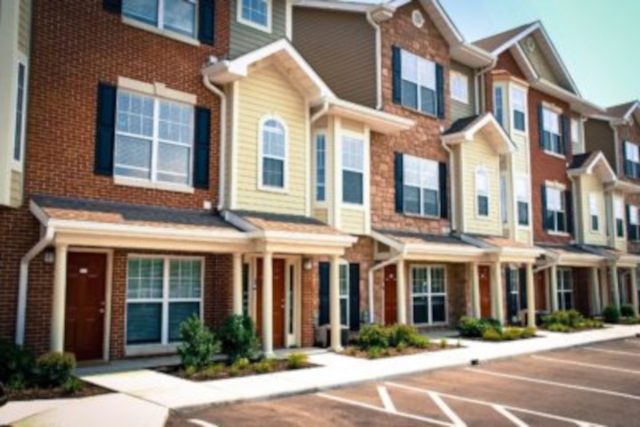What is a nuisance?
A nuisance is an unreasonable or unlawful use of one’s property that interferes with the use and enjoyment of another person’s property. It can take various forms, such as sounds, odors, or sights that disturb nearby property owners. In general, nuisance does not include everyday activities such as walking around a unit, talking on the phone during reasonable business hours, or the occasional baby or child crying. In most cases, nuisance claims arise within apartment buildings or condominium associations.
In a business context, a nuisance refers to any activity, condition, or use of property that interferes with the normal conduct of a business. These activities include actions or conditions that disrupt the comfort, convenience, or safety of employees, customers, or the general public or those that impede the effective operation of the business. Business nuisances may also include environmental hazards, such as toxic waste or pollution, that threaten the health or safety of employees or customers.
For example, a construction company operating a construction site next to a coffee shop may cause noise and vibration that interferes with the coffee shop’s business operations and affects its customers’ ability to enjoy their coffee. This type of business nuisance could lead to a lawsuit, where the coffee shop may seek injunctive relief, monetary damages, or both to remedy the interference with its business operations.
Need help with a nuisance suit? Schedule your consultation today with a top business-litigation attorney.
What legal issues typically arise related to a nuisance?
The following disputes are among the most common to nuisance actions:
- Torts: A nuisance often rises to a tort claim if it interferes with another’s use and enjoyment of their property. For example, if a factory releases fumes that affect the air quality of a neighboring community, residents may sue for nuisance.
- Zoning laws: A nuisance can also violate zoning laws and regulations.
- Environmental regulations: A nuisance may also violate environmental regulations. For example, if a factory releases pollutants into the air or water, it may be subject to fines and penalties under environmental protection laws.
- Contract disputes: A nuisance can also give rise to contract disputes between parties.
What are relevant laws related to nuisances in Florida?
In Florida, nuisance is primarily a common law claim, although numerous statutes, zoning ordinances, and regulations will apply depending on the parties’ location within Florida. In addition, contracts between neighbors and businesses can influence the enforcement of nuisance claims.
For example, almost all Florida condominium associations have documents that prohibit nuisances but provide no express definition of nuisance. The definition of a nuisance must therefore be found within the Florida case law.
Further, to show a nuisance, an owner must show ongoing conduct that substantially and unreasonably disturbs the use of their unit. “Whether the activities constitute a private nuisance is a question to be decided based on the facts presented, and a court looks to whether there is an appreciable, substantial, tangible injury to the property rights of others, and not merely a trifling annoyance, inconvenience, or discomfort.” Admiral’s Port Condominium Association, Inc. v. Roberto Barani, 2014 WL 1513532, at *3 (Fla. DBPR Arb. March 5, 2014) (citing Bechman v. Marshall, 85 So. 2d 552 (Fla. 1956); Baum v. Coronado Condominium Association, Inc., 376 So. 2d 914 (Fla. 3d DCA 1979)).
What is required to prove a case of nuisance in Florida?
To prove a common law nuisance case in Florida, the plaintiff must demonstrate the following:
- Existence of a nuisance: The defendant’s activities unreasonably interfere with the plaintiff’s use and enjoyment of their property. Unreasonable interference requires demonstrating that the defendant’s actions are excessive, unreasonable, and substantially interfere with the plaintiff’s property rights.
- Duty to use reasonable care: The plaintiff must show that the defendant was obligated to use reasonable care to avoid causing a nuisance. This duty may arise from the circumstances, the relationship between the parties, or the nature of the defendant’s activities.
- Actual harm or damages: The plaintiff must have suffered actual harm due to the defendant’s activities. Common harms include financial losses and decreased property value.
- Causation: The alleged nuisance must be the natural and proximate cause of the plaintiff’s claimed injury.
When a set of facts is appropriate to meet the requirements of [Topic], there are many paths a claimant may take. We are value-based attorneys at Jimerson Birr, which means we look at each action with our clients from the point of view of costs and benefits while reducing liability. Then, based on our client’s objectives, we chart a path forward to seek appropriate remedies, such as:
- Injunctive relief: An injunction is a court order requiring the defendant to stop the activity causing the nuisance. Injunctive relief is often the preferred remedy for a nuisance because it immediately stops the harmful activity.
- Compensatory and punitive damages: The plaintiff may recover damages to compensate them for the harm or losses they have suffered due to the nuisance.
To see what actions may be available for your unique situation, please contact our office to set up your initial consultation.
What are common defenses to nuisance in Florida?
The primary defenses to nuisance in Florida include:
- Legislative right or immunity: In some cases, through either constitutional amendments or other legislation, the Florida Legislature (the “Legislature”) has exempted certain activities from the status of a nuisance entirely. For example, the Legislature has declared that no farm operation that has existed for one year or more and that was not a nuisance at its inception will be considered a nuisance if it conforms to generally accepted practices.
- Prescriptive right: The defendant could contend that they have a prescriptive right to use their property in a certain way because they have been doing so openly, continuously, and without objection for an extended time. Although this has not been officially allowed in a Florida court, some courts have expressed some acceptance of the concept.
- Necessity: The defendant may argue that their activities are necessary for the public good or the protection of their property and that the nuisance results from this necessity.
- Laches: The defendant could invoke the doctrine of laches and state that the plaintiff has waited too long to bring their nuisance claim. Laches occurs when a plaintiff has brought a claim for equitable relief and waited long enough to do so that it prejudices the defendant.
To see what defenses may be available for your unique situation, please contact our office to set up your initial consultation.
Have more questions about a nuisance-related situation?
Crucially, this overview of nuisance does not begin to cover all the laws implicated by this issue or the factors that may compel the application of such laws. Every case is unique, and the laws can produce different outcomes depending on the individual circumstances.
Jimerson Birr attorneys guide our clients to help make informed decisions while ensuring their rights are respected and protected. Our lawyers are highly trained and experienced in the nuances of the law, so they can accurately interpret statutes and case law and holistically prepare individuals or companies for their legal endeavors. Through this intense personal investment and advocacy, our lawyers will help resolve the issue’s complicated legal problems efficiently and effectively.
Having a Jimerson Birr attorney on your side means securing a team of seasoned, multi-dimensional, cross-functional legal professionals. Whether it is a transaction, an operational issue, a regulatory challenge, or a contested legal predicament that may require court intervention, we remain a tireless advocate every step of the way. Being a value-added law firm means putting the client at the forefront of everything we do. We use our experience to help our clients navigate even the most complex problems and come out the other side triumphant.
If you want to understand your case, the merits of your claim or defense, potential monetary awards, or the amount of exposure you face, you should speak with a qualified Jimerson Birr lawyer. Our experienced team of attorneys is here to help. Call Jimerson Birr at (904) 389-0050 or use the contact form to set up a consultation.

We live by our 7 Superior Service Commitments
- Conferring Client-Defined Value
- Efficient and Cost-Effective
- Accessibility
- Delivering an Experience While Delivering Results
- Meaningful and Enduring Partnership
- Exceptional Communication Based Upon Listening
- Accountability to Goals











